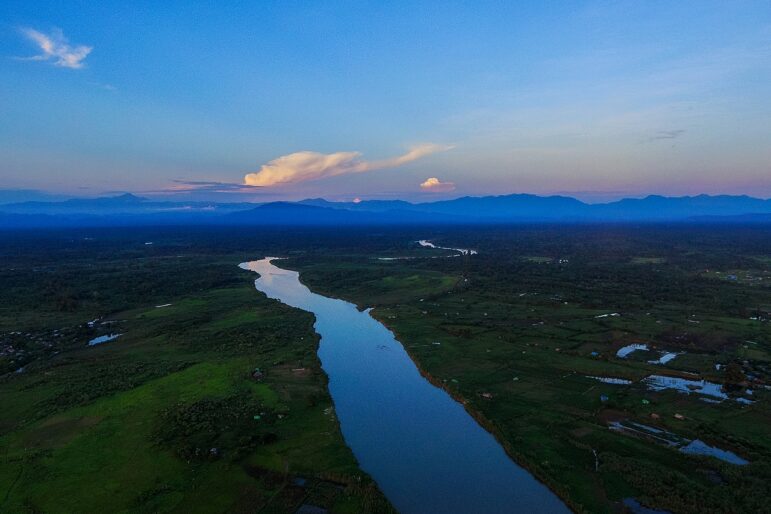New research: Civilian monitors in Myanmar means more protection
New research adds credibility to what Nonviolent Peaceforce (NP) and our partners know to be true: when civilians and communities strengthen the necessary knowledge, expertise, and networks to organize effective protection, that is, civilian capacity, their efforts are more likely to curb or mitigate violence.
That is why, for years prior to the 2021 military takeover in Myanmar, NP trained and supported local civil society networks across the country. Alongside local organizations, NP strengthened civilians' skills in protecting themselves and their communities as well as their skills on monitoring ceasefire agreements and human rights abuses.
But now, Myanmar has descended back into quasi-civil war. Many people who used to work for peace and democracy have been arrested, are in hiding, or fled the country. Last week, the military executed four democracy activists for the first time in decades. Others are holding their ground against all odds. Once again, the individuals and networks NP once trained as ceasefire monitors are adapting their knowledge and skills to the changing reality on the ground.
Jana Krause (University of Oslo) and Erin Kamler (Minerva University & Chiang Mai University) conducted research into the work of these networks, which they published in "Ceasefires and Civilian Protection Monitoring in Myanmar." Their research shows that,
"despite failed ceasefires in Myanmar, the nurturing of civilian monitoring networks, that is, supporting civilian capacity, had a positive—albeit limited—impact on civilian protection. Monitors adapted knowledge from international ceasefire monitoring trainings to their reality on the ground and implemented civilian protection monitoring. Yet, conflict conditions seriously limited protection monitoring and posed grave security challenges to monitors and communities".
A township monitor from Myitkyina, interviewed by the authors, illustrates just how valuable these networks are for protecting civilians:
"We can do protection, which is very effective. Because when we collect the information, we have to confirm what happened, who and why, if we note more troops, we have to clarify where are they planning to go, what are they planning to do, which is very helpful to protect civilians because if we receive the information ahead of time we can give the civilians early warning. It will be less devastating for the civilians. Previously, we did not have these communication networks but now we collect this information."
The authors conclude that in conflicts where armed actors show little sensitivity to civilians or commitment to respecting human rights, the need for civilian protection is high. However, the potential impact of civilian monitoring on improving protection is limited as long as there are weak incentives for armed groups to better protect civilians.
This is why your support for resilient community networks is so critical—especially before a conflict escalates.
And one way to strengthen community resiliency? The ongoing collaboration of academics and practitioners working on civilian protection is a crucial way to enhance our collective understanding of what works well and what we could do differently.

